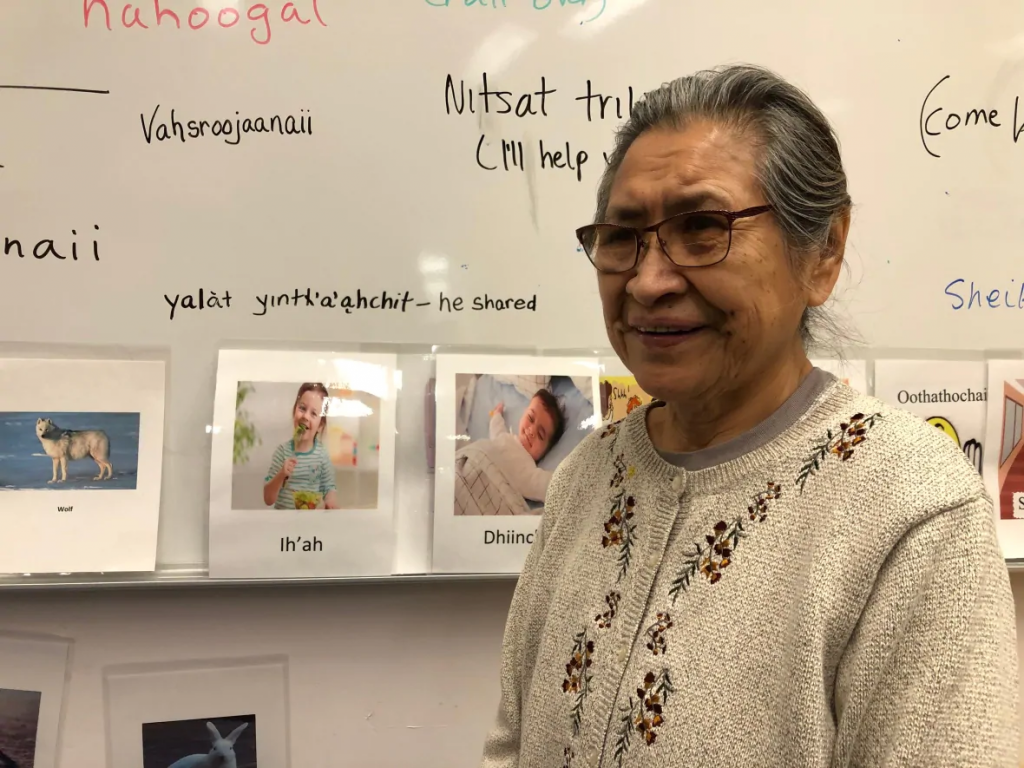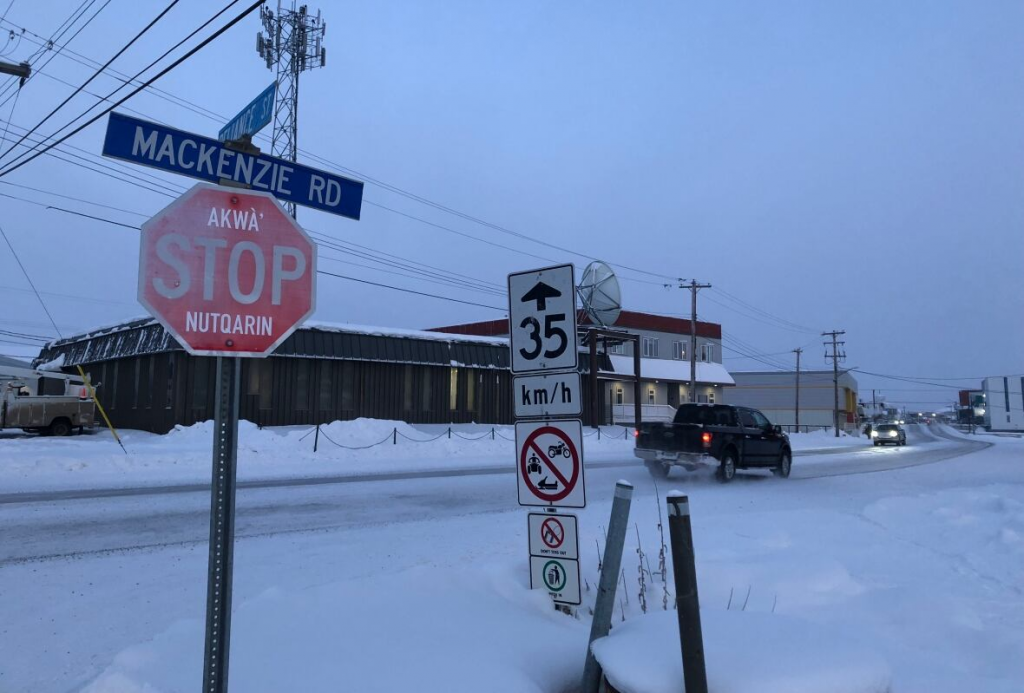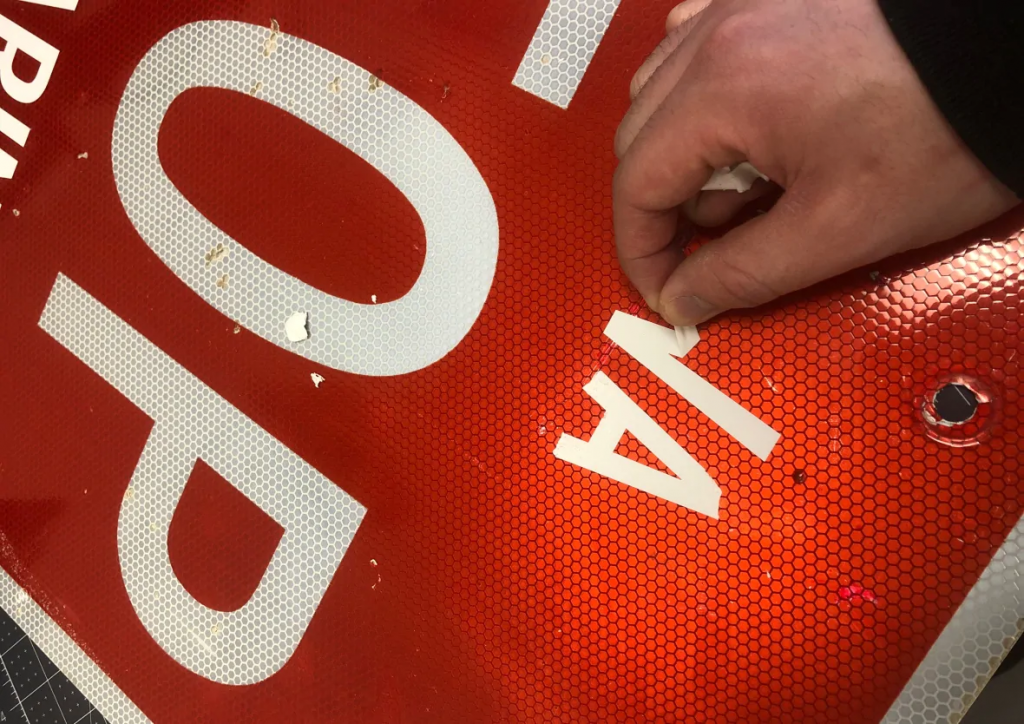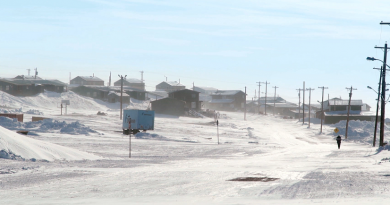Stop sign project in northern Canadian town on pause after questions over Gwich’in wording

The group behind newly translated signs in Inuvik, N.W.T., is pausing their project after people began questioning the Gwich’in translation that was used.
Three new signs with translations in both Inuvialuktun and Gwich’in were put around town on Monday, leading some people to bring up concerns around the Gwich’in wording.
Questions about word choice
Eleanor Mitchell-Firth lives in Fort McPherson and has been a Gwich’in language translator for more than 20 years. She said she was surprised when she saw the Gwich’in word being used on the stop signs.
“The word that was showing on the sign means ‘no,’ and that’s quite different than the word ‘stop.'”
She said different people were contacting her once the signs went up, asking her what the word meant and if it was the word she would have used.
Mabel English is the local elder and teacher who was initially consulted about the Gwich’in word for the project. English said she knew the word she gave meant ‘no’ — but to her knowledge at the time, it was the simplest translation.
“You know when the red [light] goes on it’s no, don’t drive,” said English. “Yes and no. We were trying to make it like that, as easy as possible.”

Lost in translation
Jason Lau, one of the project’s organizers, said the community-based project team was aware the word they used wasn’t an exact translation of the word “stop.”
“We obviously knew that it meant ‘no.’ However, the group thought ‘no’ as Mabel advised us, is used in a context to tell someone to stop.”
Lau said the group did not consult anyone else on the Gwich’in translation before putting up the signs on Monday.
He said they had reached out to someone from the Gwich’in Tribal Council, but the person was out of town and they decided to go ahead using only the one translation.

Discrepancies not uncommon: specialist
Andrew Cienski, the language revitalization specialist with the Gwich’in Tribal Council, said these types of discrepancies aren’t uncommon when it comes to translating between the two languages.
Cienski said this is because while English can be a more abstract language, Gwich’in is very specific and literal. This can complicate translations especially when it comes to a verb such as stop, he said.
“In this case you’re really forced to have a single word representing a single English word … there isn’t always a clean, one-to-one correspondence between the two languages.”
Elder Mitchell-Firth said the word that was chosen wasn’t necessarily wrong, but because there are different dialects it is important to consult multiple people to find the best word possible.
“Even though I’ve been doing it for over 20 years I still take it to an elder and go through it with them because sometimes the Gwich’in words don’t really explain the English.”

‘Important part of consultation’
For different reasons, Lau said the project felt pressure to launch the signs on Monday.
He said, for example, they were under the impression that Indigenous languages month was in March. However, when they found out it was in February, they wanted the signs to be up before the end of the month.
Lau said the project will be taking down the old signs, and replacing them with new ones once they have settled on a translation.
“I think we have to take it slow. I think that’s a really, really important part of consultation is taking the time to garner the feedback,” said Lau.
For now, he said the project is actively seeking further consultation and welcomes dialogue around language.
Related stories from around the North:
Canada: Stop signs in northern Canadian town to include Indigenous languages, CBC News
Finland: Budget cuts threaten international Sámi language cooperation, Yle News
Norway: Walt Disney Animation Studios to release Saami-language version of “Frozen 2”, Eye on the Arctic
Russia: Russia removes critical voices ahead of Arctic Council chairmanship, claims Indigenous peoples expert, The Independent Barents Observer
Sweden: Sami indigenous village wins historic land use case over Swedish state, Radio Sweden
United States: Inuit leaders applaud UN move to designate International Decade of Indigenous Languages, Eye on the Arctic



